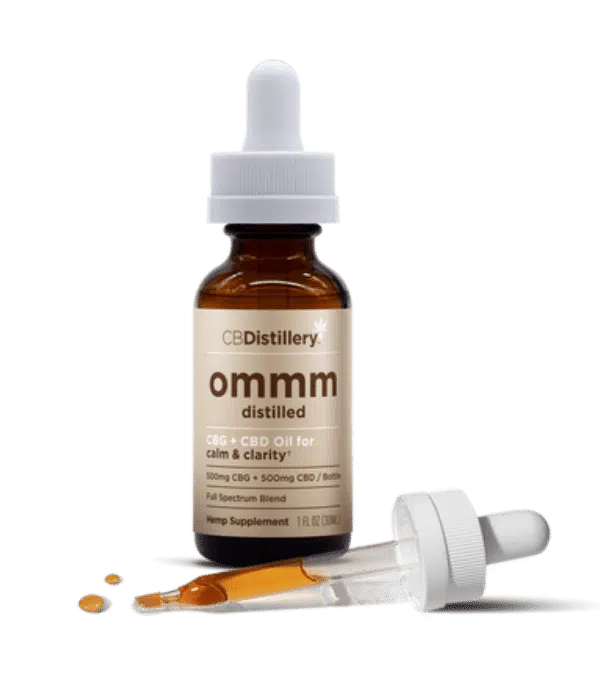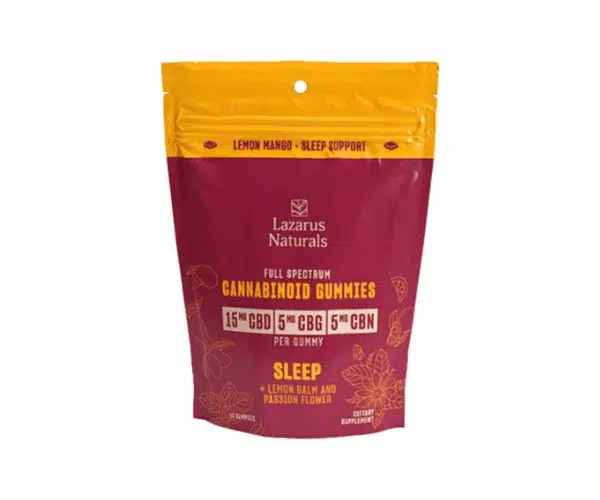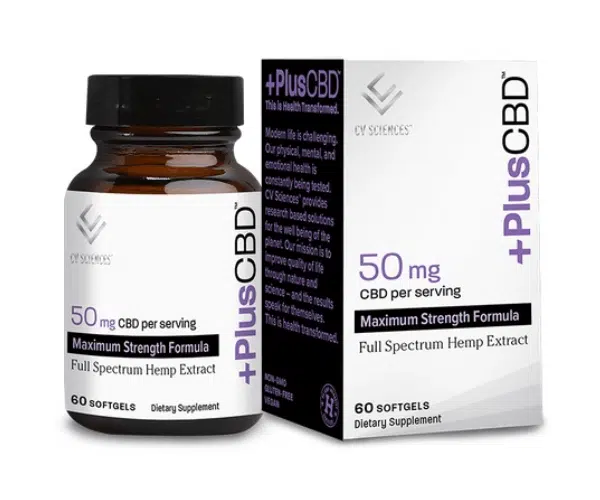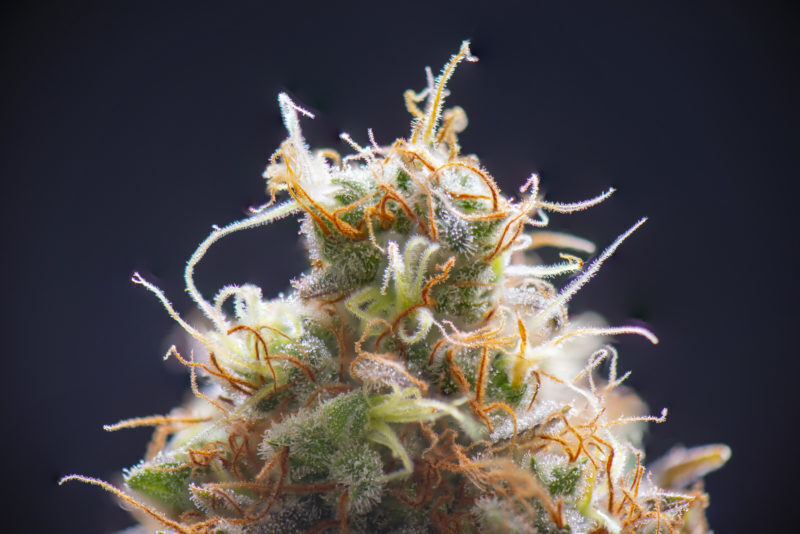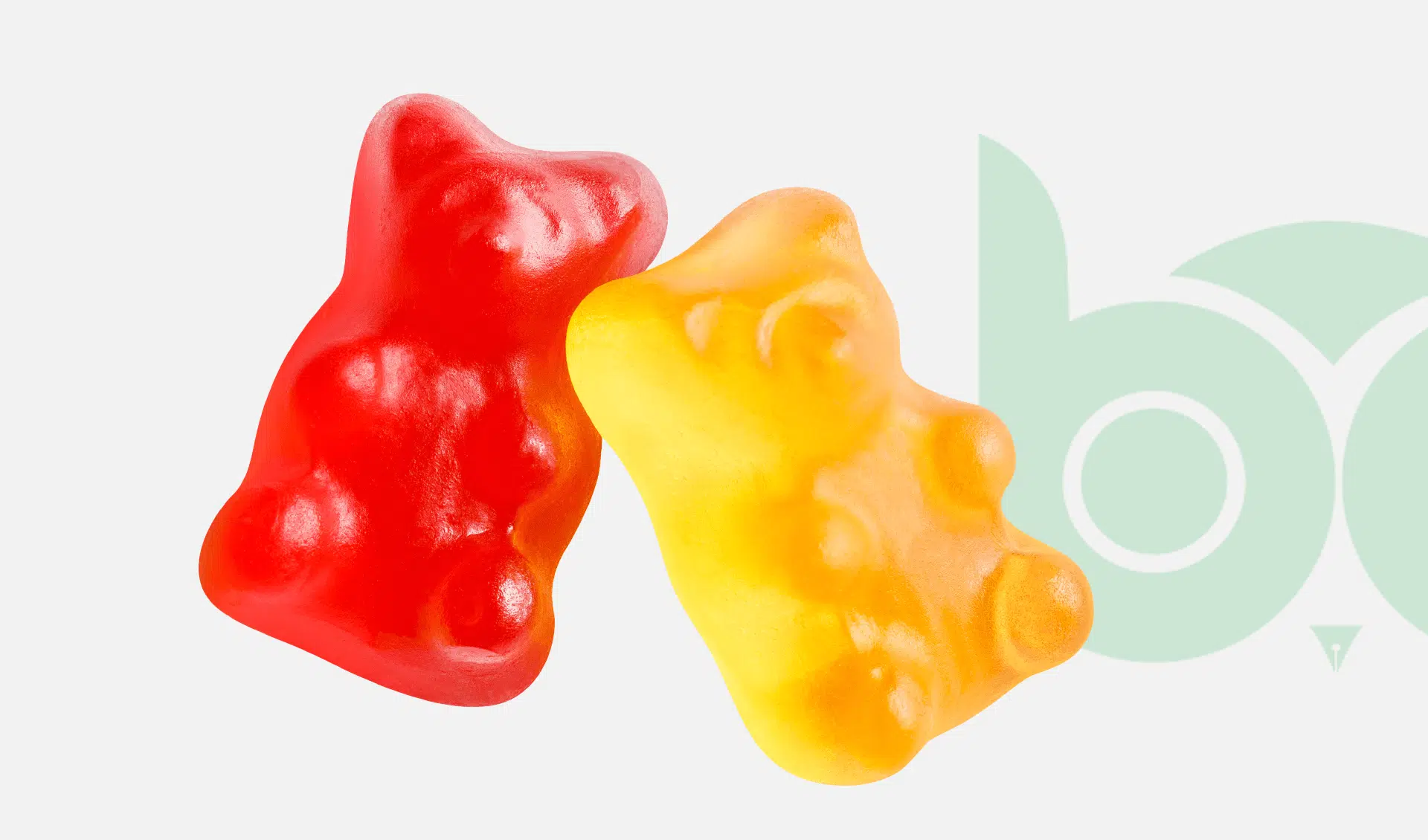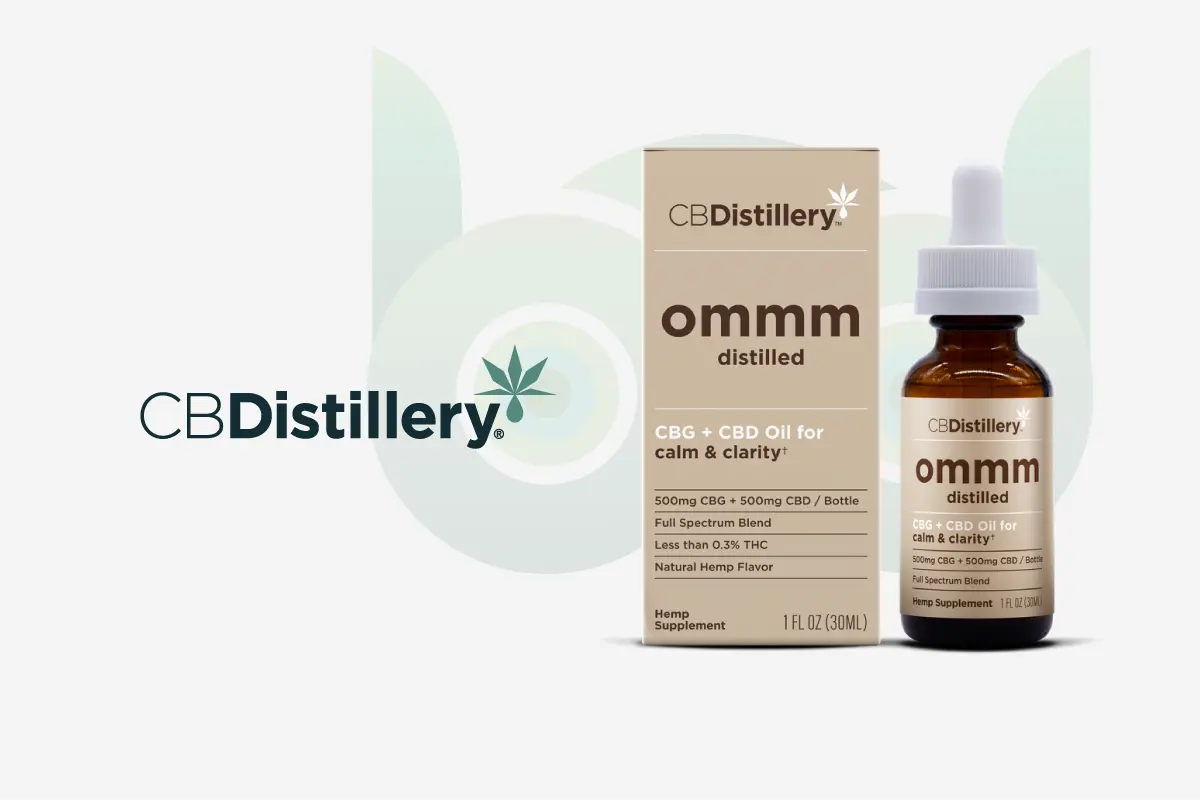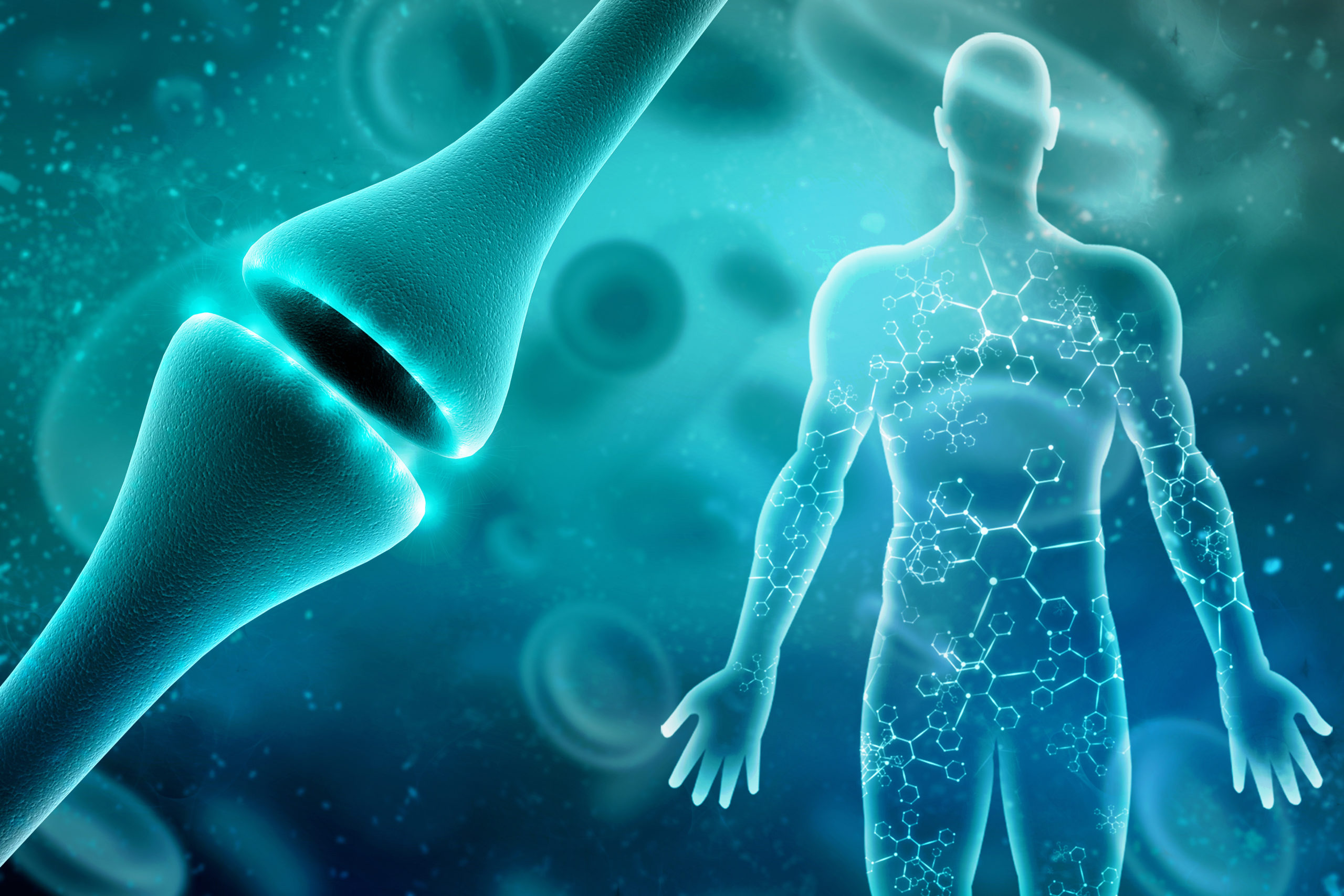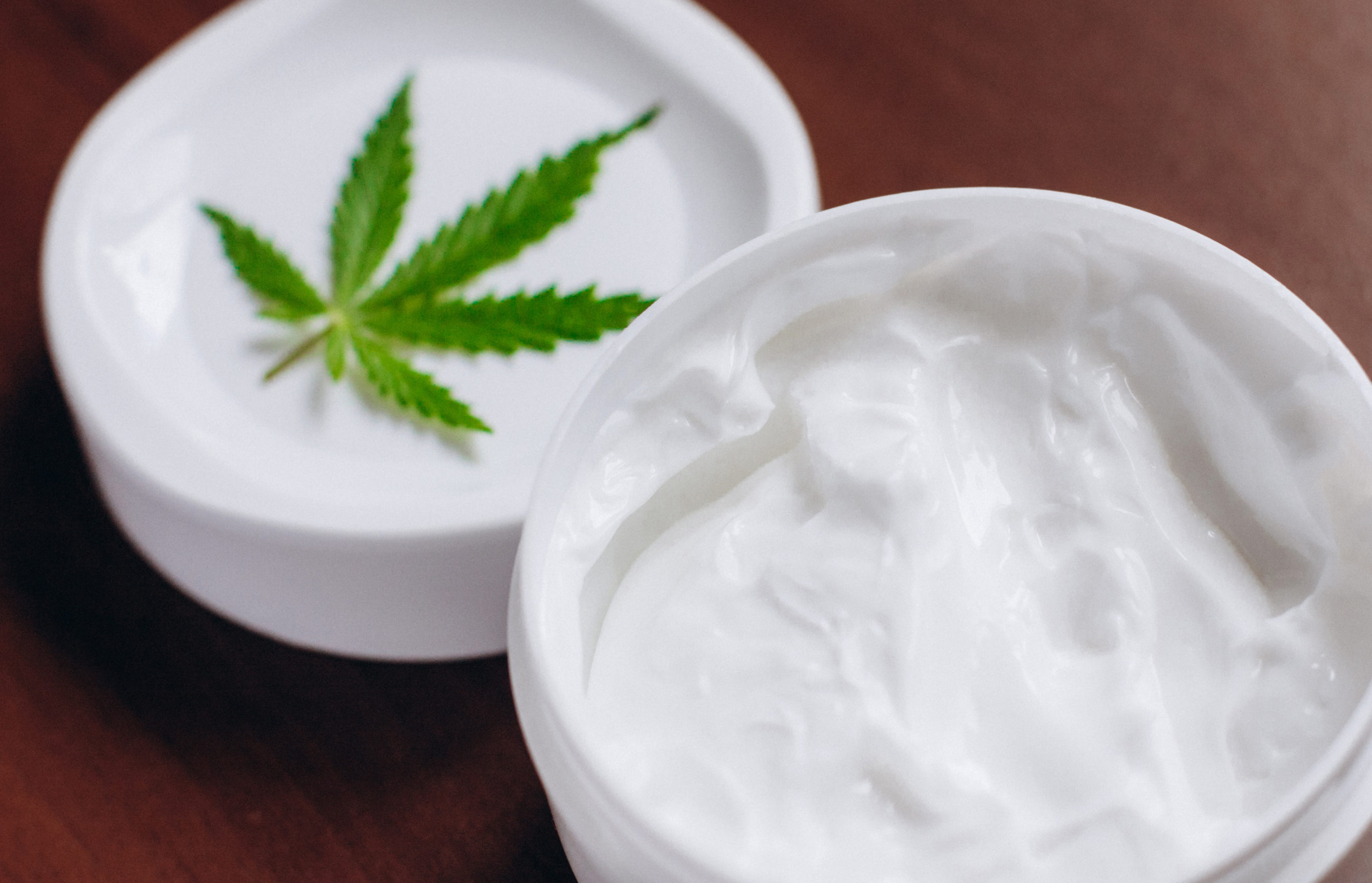-
- Market Research
- |
- CBD Near Me
- |
- Giveaways
- |
- Newsletter
- |
- Contact
- |
- Advertise
- |
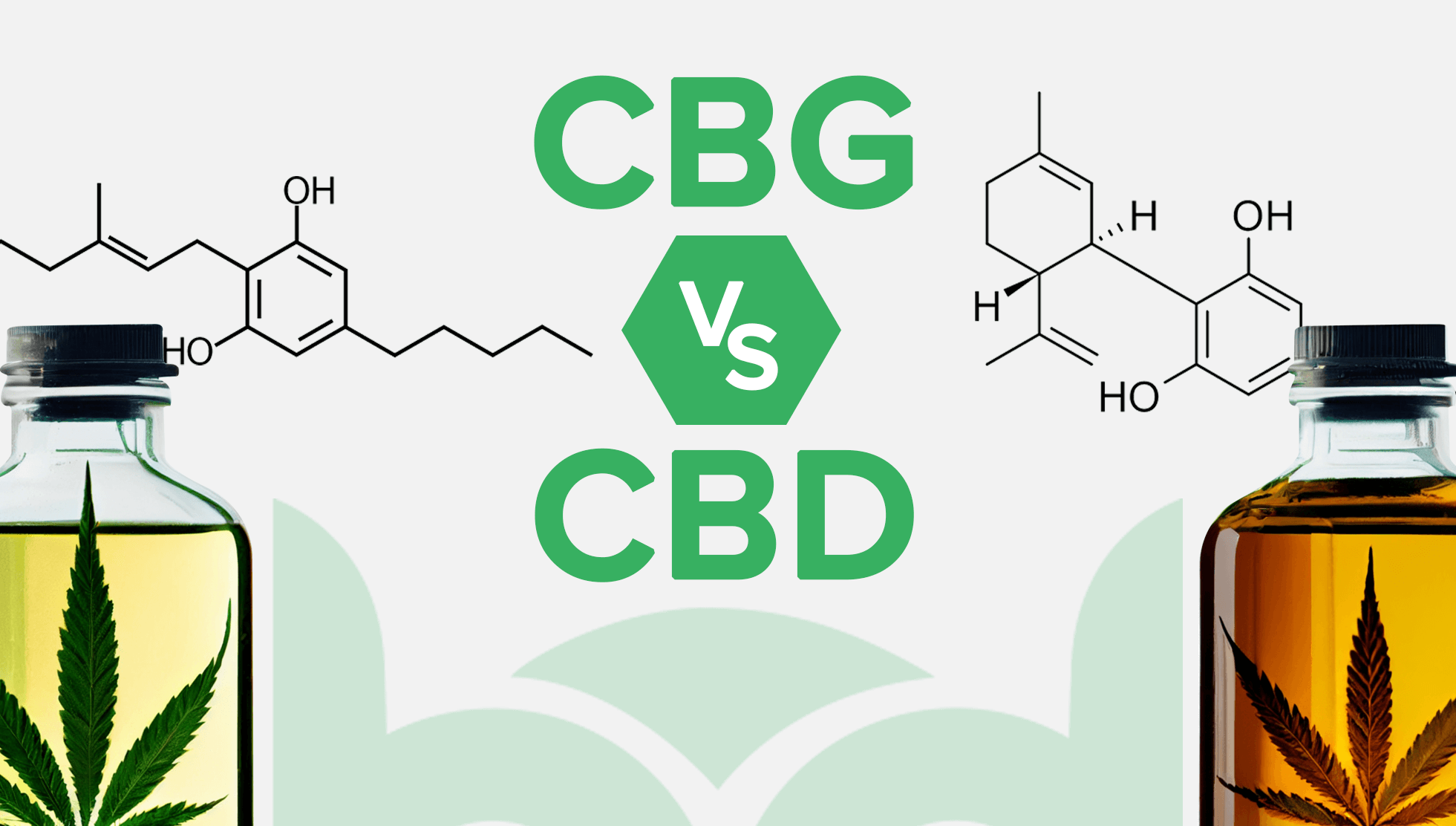
Most people don’t have a firm handle on cannabidiol (CBD), let alone the differences between cannabidiol and cannabigerol (CBG).
And between the FDA’s cold shoulder and the hesitation of many doctors to discuss it, we get it.
But never fear, we’re here to sift through all the hype and misinformation to bring you a clear understanding, and CBG vs CBD is an excellent place to start.
In this article, we’ll explore what these cannabinoids are, how they work, and of course, how they compare and contrast with one another.
First things first, introductions are in order.
Quick Introductions
Cannabidiol and cannabigerol are both classified as cannabinoids—two of more than 200 chemical compounds that are naturally derived from cannabis plants.
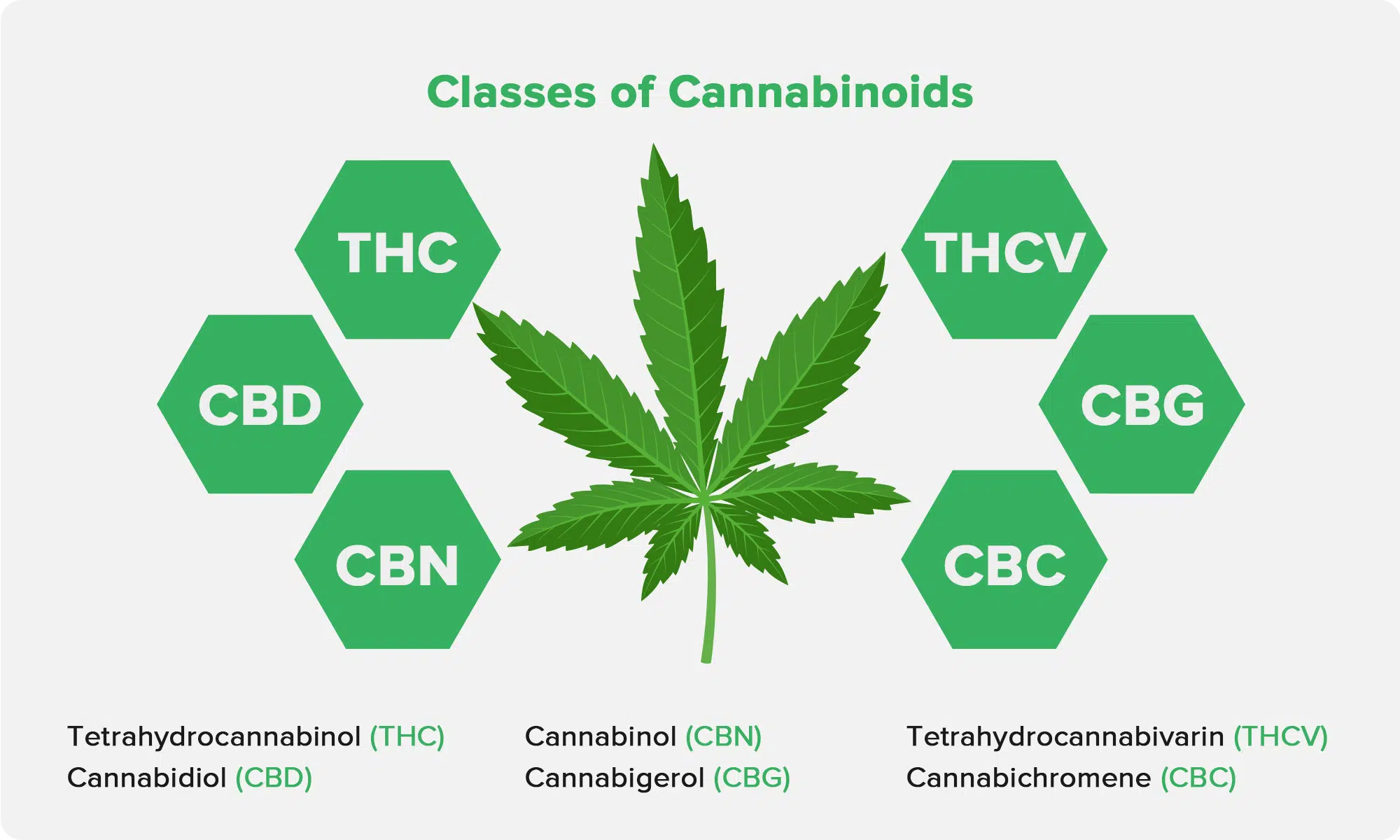
Both of these compounds are described as “non-euphoric” or “non-intoxicating,” but we aren’t alone in contending that they aren’t completely incapable of producing psychoactive effects.
This is a lot of closely related terms—basically, neither CBG nor CBD will cause a “high,” but to say they can’t have subtle impacts on mood and cognition is not accurate.
As for their natural occurrence, CBD (along with THC) is generally much more abundant in hemp plants, though genetics can affect this slightly.
Hence, CBD and CBG are often dubbed “major” and “minor” cannabinoids, respectively.
Finally, we’ll keep the organic chemistry as simple as this: CBG and CBD have different chemical structures, referring to different placements (and bonds between) carbon, hydrogen, and other atoms.
How CBG and CBD Interact With the Body
Hey, we said we would keep the organic chem to a minimum, not the biochemistry.
All jokes aside, here’s the basic concept: CBG and CBD interact with many of the same cell receptors, but often in different ways.
The primary apparatus humans are equipped with for interacting with most, if not all, bioactive cannabinoids is called the endocannabinoid system.
Yup, we produce our own cannabinoids—anandamide is a prevalent example—so it stands to reason we would have (two) receptors for them, labeled the CB1 and CB2 receptors.
CBD and the Endocannabinoid System
Actually, CBD has “little binding affinity” for both receptors, as this Frontiers article puts it, but it does have a nifty ability to reduce the CB1 receptor’s ability to bind with other cannabinoids via a process known as “non-competitive negative allosteric modulation.”
In English, this means that when a hearty dose of THC comes a-knocking on CB1, CBD can actually “change the shape” of the receptor by binding to it, which passively disallows THC (and other agonists) from binding as effectively.
All this said, THC or otherwise, CBD’s direct interactions with the endocannabinoid system are still strong enough to activate several of its functions, which include:
- Anti-inflammatory effects
- Helping with stress
- Regulating appetite
- Promoting sleep
- Immune system modulation
Granted, not all of these therapeutic benefits—not an exhaustive list, by the way—have been solidly linked to CBD in the research, but they are still associated with the endocannabinoid system.
CBG and the Endocannabinoid System
As for CBG, which is considerably behind CBD in terms of research, studies like this one from the University of Barcelona suggest that it is a “partial agonist” at the CB2 receptor, meaning that it can bind to and activate CB2’s effects to a limited extent.
The same finding reported that “The effect on CBG on CB1R (what we’re calling CB1) was measurable but the underlying molecular mechanisms remain uncertain.”
Considering the similarities in how CBD and CBG impact the endocannabinoid system, it’s unsurprising to learn that CBG also promotes relief from inflammatory conditions and some other forms of discomfort.
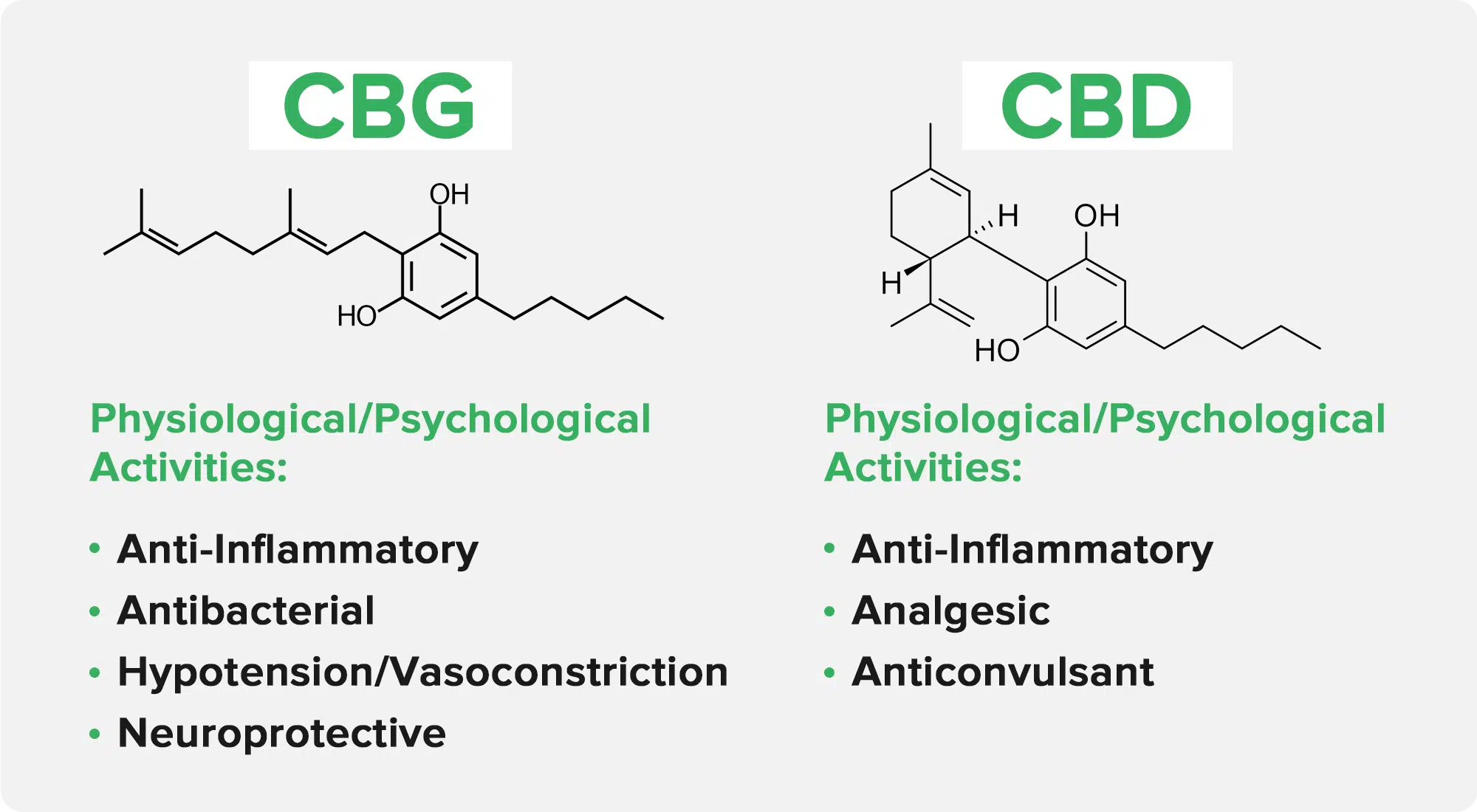
But the overlap isn’t complete; some academic reviews have pointed to a trend in studies suggesting CBG may help with complex neurological conditions like Parkinson’s disease, Huntington’s disease, and multiple sclerosis (MS).
Finally, the endocannabinoid system may take center stage when it comes to how the body responds to CBD and CBG, but researchers are learning that it’s not the only game in town.
Where CBD is believed to be an agonist of the 5-HT1a receptor, an important target in psychiatric care for its roles in regulating mood, cognition, and memory, CBG has been shown to have antagonistic effects at 5-HT1a.
Alright, class is now officially dismissed.
On the more practical side of things, let’s take a look at several CBD and/or CBG products our team has personally vetted.
CBD and CBG Products
Like all CBD products, you can find CBD and/or CBG products in every popular format, including oil tinctures, edibles (like gummies), capsules, vape, and even smokable hemp flower.
We use “and/or” because, when we’re talking about a full-spectrum or broad-spectrum hemp product, CBG is one of the most prevalent minor cannabinoids to show up on third-party lab testing reports, but not always.
In other words, depending on your preference for either or both cannabinoids, here are your choices in the context of CBG versus CBD content:
- Full-spectrum or broad-spectrum CBD products that often contain both cannabinoids (CBD > CBG)
- Full-spectrum or broad-spectrum products that contain CBD and several other cannabinoids, but not CBG
- CBD/CBG products that have much higher CBG content than usual (closer to 1:1 CBG/CBD versus 1:15+)
- Rarely, CBG isolates that contain no other cannabinoids, including CBD
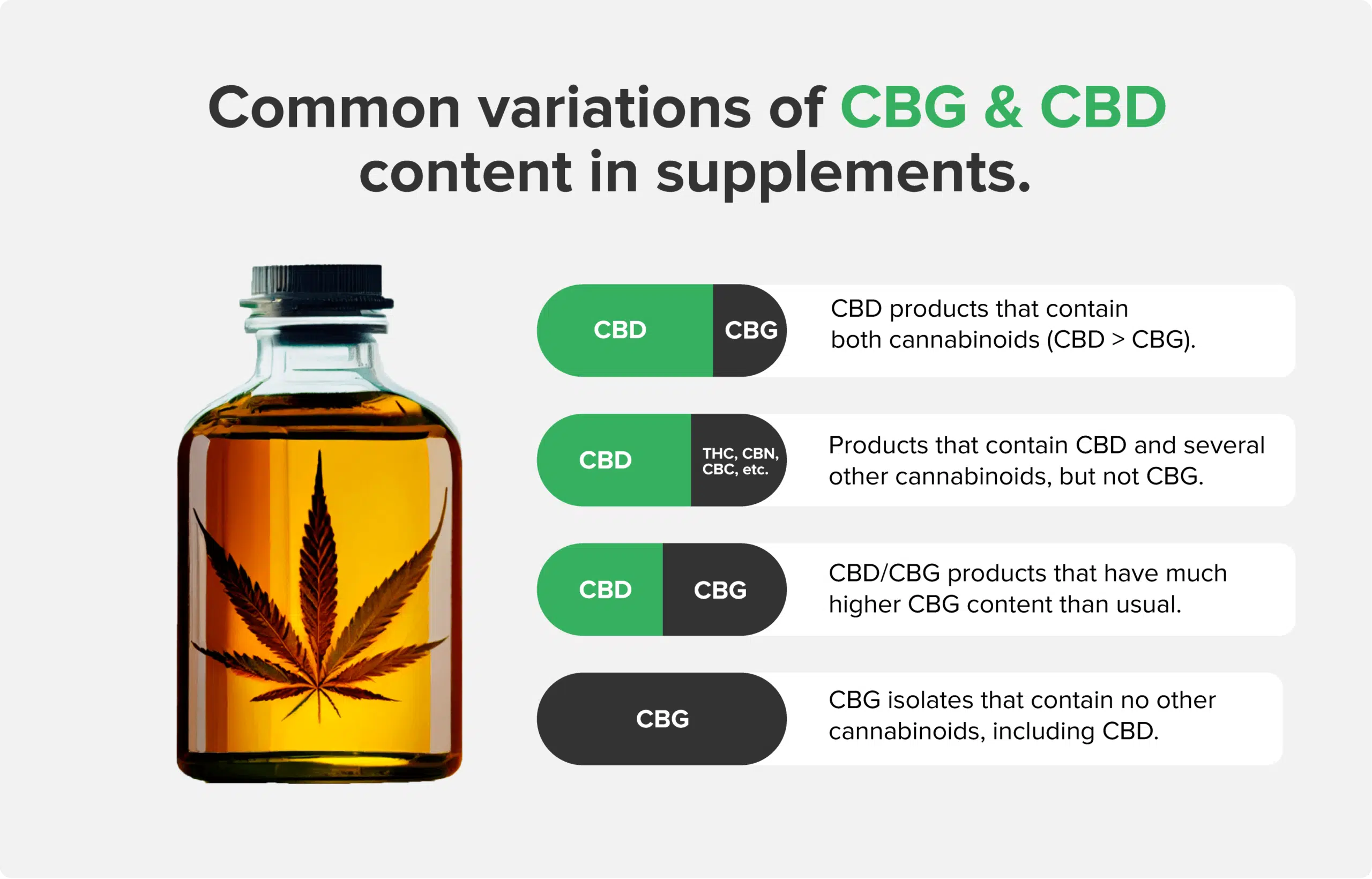
Keeping these different preferences and use cases in mind, here are our team’s top picks for CBD/CBG products:
CBDistillery Daytime Synergy CBG + CBD Oil
Concentration:
2000mg: 66mg/serving (33mg CBD, 33mg CBG)
1000mg: 34mg/serving (17g CBD, 17 mg CBG)
Ingredients:
Full-spectrum hemp extract (aerial parts), fractionated coconut oil (MCT), natural terpenes
Lazarus Naturals Cannabinoid Sleep Gummies
Concentration:
15 mg CBD, 5 mg CBG, 5 mg CBN per gummy
Ingredients:
Organic Tapioca Syrup, Sugar, Water, Organic Mango Puree, Organic Pear Juice Concentrate, Organic Clarified Lemon Juice Concentrate, Pectin, Full Spectrum Hemp Extract, Taste Modifier (Alcohol, Glycerine, Natural Flavor, Monoammoniated Glycyrrhizin), Malic Acid, Sodium Citrate, Passion Flower Extract (Herb, Maltodextrin), Lemon Balm Extract, Lemon Flavor, Mango Flavor, Chamomile Flower Extract
Plus CBD Oil Maximum Strength Formula Capsules
Concentration:
5mg/capsule (30-count or 60-count)
10mg/capsule (30-count or 60-count)
15mg/capsule (30-count, 60-count, or 90-count)
50mg/capsule (30-count or 60-count)
Ingredients:
Hemp extract (aerial plant parts), extra virgin olive oil, vegetarian softgel (modified corn starch, glycerin, carrageenan, sorbitol, & purified water), chlorophyllin.*
*Referencing 50mg Maximum Strength Formula capsules
CBD vs CBG FAQs
Is CBG more effective than CBD?
Because CBG and CBD interact with target cell receptors in different ways, often imparting different benefits altogether, it’s very difficult to clearly quantify which is more effective.
The lack of CBG research makes this apples-to-oranges comparison hazier.
Each person’s usage, product, and neurochemical makeup can also drastically affect success (or lack thereof) with each of these cannabinoids.
Should I take CBD and CBG together?
It is considered safe to take CBD and CBG together, as they very often appear together in popular hemp products.
Neither cannabinoid is thought to significantly offset the effects of the other.
In fact, the entourage effect suggests that CBD combined with CBG (and/or other cannabinoids) may produce synergistic benefits.
Is CBG or CBD better for anxiety?
Some argue that CBD is better for anxiety because it acts as an agonist at the 5-HT1a receptor, which can reduce neuronal excitability among other calming effects.
However, CBG (which acts as an antagonist) can still duplicate these effects to an extent through the endocannabinoid system.
As for a definitive answer, we still have to hold out until these points are clarified within a stronger research consensus.
Does CBD or CBG make you sleepy?
Both CBD and CBG can cause relaxation when used responsibly and more severe drowsiness or somnolence as side effects when taken in excess (or in cases of drug interactions, etc.).
At this time, most cannabinoid researchers are not definitively stating whether one of these cannabinoids is consistently more effective at promoting sleep than the other.
Does CBD or CBG give you energy?
Neither CBD nor CBG have strong stimulating effects, but by reducing neuronal excitability and reaping other stress-reducing benefits, they can both produce a sense of improved focus and energy.
To use an imperfect analogy, where stimulants like caffeine help you to power through walls, cannabinoids like CBD and CBG help to remove those walls.
Key Takeaways
CBD and CBG are naturally occurring chemical compounds found in hemp plants, with CBD significantly outweighing CBG in most cases.
Differing slightly in molecular structure and, consequently, the manner in which they interact with cell receptors in the body, CBG can produce effects similar to CBD, but there are differences as well.
You can find high-quality hemp products that contain one or both of these cannabinoids, but it is much easier to find CBD without CBG than vice versa.
As long as it’s safe for you to use cannabinoids, the combination of CBD and CBG is widely regarded as safe, and in fact, it likely produces synergistic benefits (entourage effect).
As always, we highly recommend only purchasing hemp products from reputable brands that use third-party testing.


